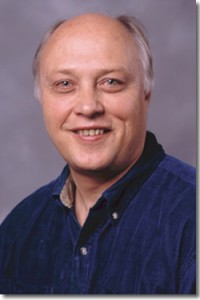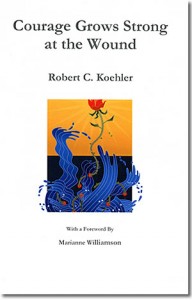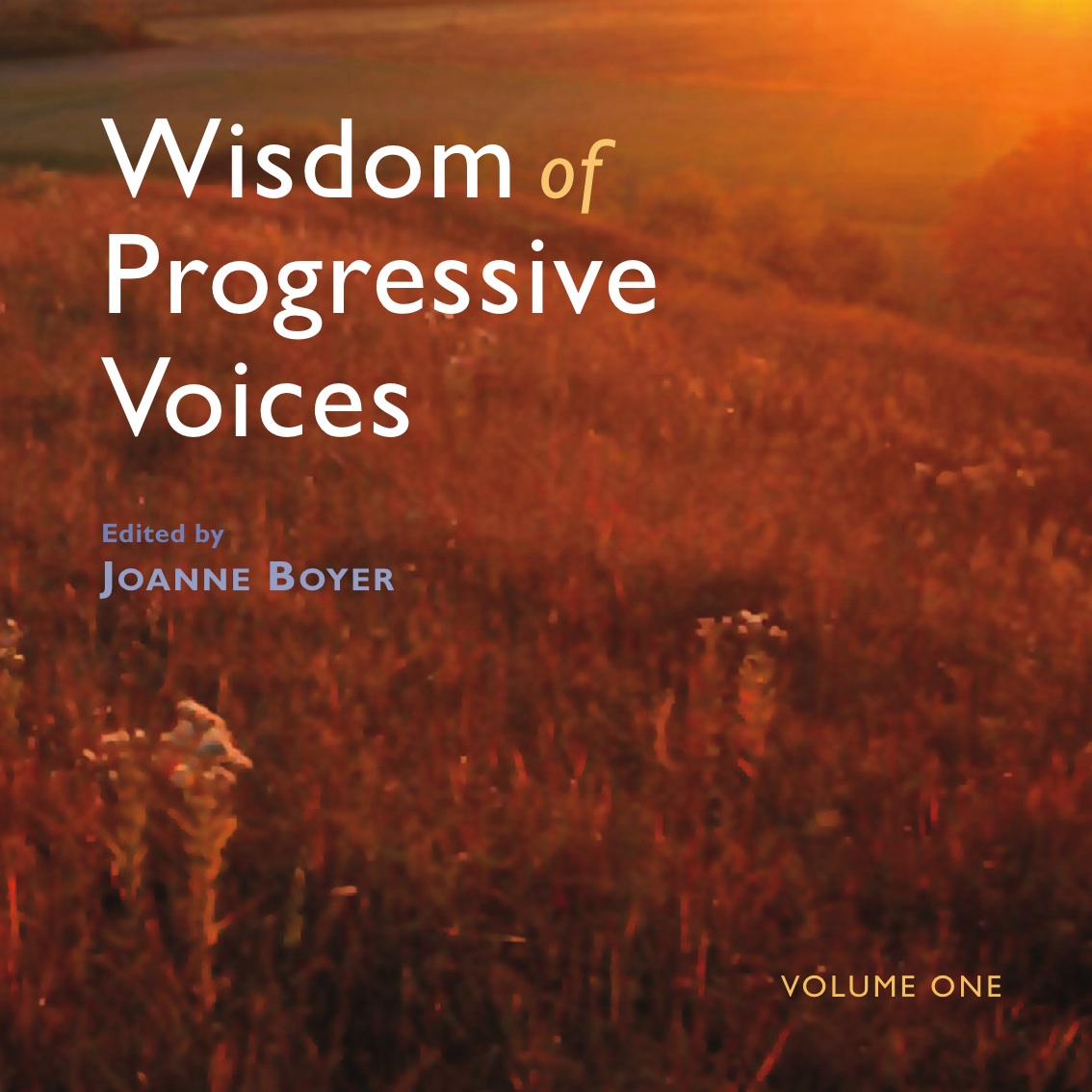Robert Koehler is a self-described “peace journalist” and nationally syndicated by Tribune Media Services, which is part of the Chicago Tribune. Many of his thought-provoking articles appear on Common Dreams, OpEdNews and other progressive sites. If you’ve not found him there, here’s the link to his own site Common Wonders. His writing reminds us, as a people, of the two words often missing from today’s conversations: conscience and soul. Two major defining characteristics of human beings.

The two main elements of my progressive identity are the bedrock “love your enemy, we are all one” moral message of basic Christianity, and my love of writing, which became my primary vehicle for taking a moral stand.
He embraces life with a courage and conviction that serves as a reminder of the human condition in all its joy and sorrow. In researching another topic, I found a reference in a student newspaper from 1901 that said: “We live with the vital truths, which we have become familiar as we live in our material environment – heedless, unobservant, indifferent; and our real self is starved because it lacks the nourishment of divine thought and yearnings.” Robert Koehler’s writings offer nourishment of divine thought.
We are honored to have had the opportunity to capture a few of his views for our June Progressive Profile. His insights serve as a daily reflection for how to live our lives.
Q. What in your DNA has provided you the insights and “progressive” thought that fills your writing?
I wonder about this all the time. I wasn’t raised as a progressive. My parents were apolitical Ike-Republicans when I was a kid. I grew up as a conventional Lutheran, having been taught that all non-Christians went to Hell. There were no blacks or Jews anywhere in sight when I was growing up, in the nonchalant, endemically racist world of 1950s white America. But I would say my parents were good, loving people who never taught me to hate or fear others, but to act with Christian charity to all.
That remains my basic moral template. As I grew up, I simply applied this to the real world as I encountered it. I challenged lots of society’s far more superficial values. I came on my own to question the logic of violence and incubated antiwar sentiments throughout my childhood and adolescence, but externally I was apolitical. Even as the civil rights movement started rolling, I remained apolitical — abstractly supportive, but never motivated to be an activist. I rejected my religion at age 16, influenced by two books, Exodus, by Leon Uris, and The Age of Reason, by Thomas Paine. I was 18 when the Berkeley Free Speech Movement hit the news and that really resonated with me.
By then I knew I wanted to be a writer and recoiled at the pseudo social horror surrounding taboo words. In college, at Western Michigan University, my rebellious tendencies finally pushed me toward progressive politics, and I became active in the civil rights and eventually antiwar struggles then going on. Western was a fairly conservative school but had a progressive contingent that I embraced — and in the process found myself as a person more fully than I ever had in my life. The two main elements of my progressive identity, I would say, are the bedrock “love your enemy, we are all one” moral message of basic Christianity, and my love of writing, which became my primary vehicle for taking a moral stand.
Q. I see you spent some time in Kalamazoo. With the Alberta tar sands spill that has polluted the Kalamazoo River, what are your thoughts about what we are doing to the planet and our environment? Do you see hope in what is going on today to try and save the environment and the planet?
I was horrified when I learned about the oil spill in the Kalamazoo River, which I knew well. I went to college in Kalamazoo and lived in that part of Michigan for ten years. I was in my early 20s when the environmental movement came into being and became a back-to-the-lander for a number of years, living on a communal farm and learning many basic farming and gardening skills. Even though I eventually moved to Chicago to find a career in journalism, the cause of environmentalism is very close to my heart; I am active in urban gardening. I feel a great deal of frustration and despair about the out-of-control economic forces that exploit, consume and trash the environment, and have less optimism about this than most other problems we face. My hope is with the many passionate young people in Chicago and around the world who have begun devoting their lives to social change and eco-sanity.
Q. Peace. The word rings through most of what you write. Did you think at this point in your life, that the concept of peace would be something that you would need to defend or have to explain and/or try to defend?
Yes and no. 9/11, Bush, the war on terror — these things have shattered the national soul. This is the new normal — an Orwellian permanent war, now hardly more than background noise. This sort of thing I never, of course, foresaw in my younger days. Now the quest for peace has intensified in urgency tenfold or a hundredfold. Human civilization is unraveling environmentally, politically, culturally, spiritually. A warped economic system depends on war: the military-industrial complex, the prison-industrial complex. We have a system that requires enemies, that weeds people out. To hear the stories of those who are on the wrong side of the divide, whether at home or abroad is so heartbreaking, but what it has done is open up the urgency of peace like never before — the urgency of learning how to build a new sort of society, based on connectedness, the Golden Rule.
“Peace” is an endless experiment; it’s always tentative. We have to start by finding a few basic principles: the new social bedrock. We’re in the process of doing this, and involvement in this process is what gives meaning to my life.
Q. What keeps you motivated today to keep writing on topics such as peace and non-violence?
I do have a fragile optimism. My passion these days is for restorative justice, restorative practices, peace circles: People finding new ways to connect and communicate and resolve conflict. There are people who have moved beyond the win-lose paradigm and domination culture. As Einstein said, “We can’t solve our problems with the same level of thinking that created them.” I believe many of us are living, or learning to live, at a new level of thinking. I call it power with one another, as opposed to the current political-economic-religious paradigm of power over one another. While I despair at the pending consequences of our current short-sightedness, I remain passionate that millions of people across the globe are working quietly to build the world that must evolve.
Q. What has dealing with death as directly as you have taught you about living life fully each and every day?
Perhaps the most important thing I learned when I lost my wife to cancer 15 years ago is that death is not the enemy. I was at her side as she died. She became radiant, the pain furrows loosened. She became beautiful and whole as she let go. It was, except for being present at the birth of my daughter, the most amazing experience of my life. Death is not what we need to fear; we’re embraced in a loving universe. The sticking point is human behavior, human fear. Pierre Teilhard de Chardin said, “We’re not human beings having a divine experience. We’re divine beings having a human experience.” Re-remembering this, as I must do every day, pulls me out of whatever anger and anguish may be gripping me at the moment.
Q. Are there “heroes” you admire? Who from the past or today inspires you?
This could be a long list but I’ll talk about three. The first is my late wife, Barbara, who was a public interest attorney with an extraordinary passion for social justice. Her courage in the face of a fatal illness remains my life’s beacon. She was also an unreconstructed hippie who reawakened my social conscience after I had become a journalist and had begun drifting into cynicism. She reconnected me to my soul, to my love of justice and fairness. She turned me, or inspired me to turn myself, into a peace journalist.
As hero #2, I choose the late Ken Macrorie, a writing teacher and mentor I had as an undergraduate at Western Michigan University. He developed a teaching technique called free writing and taught me how to find my own voice as a writer. Every day I feel indebted to him for his encouragement and support so many years ago.
Finally, I will mention a writer named Rupert Ross, who wrote an extraordinary book called Returning to the Teachings, which is about restorative justice and the peace circle process as we Westerners learned it from aboriginal cultures in Northern Canada. A Canadian crown attorney, Ross wrote about his own experience with tribal men and women who insisted on reclaiming the culture the Europeans had destroyed in the previous century. His book taught me, among much, much else, that civilization is not a linear path of progress, from a primitive to an advanced state, but that “advanced” Western culture is spiritually impoverished and knows very little about the forces that tie us to one another and our planet. Thank God for the native peoples everywhere who can help us relearn what we’ve been forgetting for the last five or six millennia.
Q. As a journalist who probably cut his teeth during the Watergate days, what are your comments/insights into the state of journalism today? Where do you see (if you do) signs of hope for the 4th Estate?
My journalism career began in the early ‘ 70s, just before Watergate. It may be that the Watergate revelations were the culmination of “liberal journalism,” a several-decade run that began with the civil rights movement in the ’50s. While the alleged liberal media initially kept its mouth shut about Vietnam, eventually it embraced an antiwar stance and was instrumental in ending — and forgetting about — that horrific war. Post-Watergate, at least as it has always seemed to me, the mainstream media underwent convulsions of remorse for speaking truth to power and promised never to do it again. Political scandals came and went but the media never again, even during Iran-contra, dug down to bedrock moral principles in its reporting. It more or less reverted to a sophisticated form of yellow journalism, titillating the public with violence and celebrity gossip. Where do I see signs of hope? Well, I have admiration for every journalist who is able to claim a sense of independence in his or her work. The big problem, in mainstream, well-compensated journalism is at the top. It’s big business. The newsroom isn’t independent of the interests of the owners. In such a context, most reporters control their curiosity and practice self-censorship, only digging for the truth in acceptable directions.
The hideous unanimity with which the mainstream media supported the post-9/11 Bush agenda is a crime against humanity, and any official media remorse for supporting this ghastly mistake has been tepid and superficial, and certainly doesn’t translate into skepticism toward the next war. My main sense of hope is in the flourishing progressive sites on the Internet, such as Common Dreams and Democracy Now; in the concept of peace journalism as developed by Johan Galtung at transcend.org; in the many fabulous documentaries being made. The collapsing media empires no longer have a corner on legitimacy.
Q. Do you think life runs in cycles? Or do you sense that what we are experiencing is really different from other cycles of history?
I think both are true. Life is cyclical and also it is evolving — thus every cycle thrusts us a little further into our becoming. Our economic system is consuming the planet, as well as our spiritual life; at some point in the not too distant future, as so many people are saying, this can’t keep going on. The system will collapse and something new will have to emerge. It’s frightening to contemplate, unless I let myself relax and trust the great unknown. I think humanity is moving toward something beyond itself. I also believe love is a tremendous force in the universe and it embraces us whether we know it or not. Just as molecules became so complex that cellular life emerged on the planet out of inanimate matter, so this complexity of connection continues, and it involves us.
 Q. Tell us a bit about your book.
Q. Tell us a bit about your book.
My book is called Courage Grows Strong at the Wound. You can get information about it at commonwonders. There’s a lot in it that’s personal. It moves from the inward journey to the outward journey — from dealing with my wife’s death to groping for an end to war. It’s also about the comedy of errors of being a single dad raising an adolescent girl; it’s also about everyone’s inner genius. The book is deeply reverent and irreverent as hell. We’re divine beings having a human experience. This book takes a close look at that human experience.
Q. What “advice” would you give to keep people engaged in trying to make positive change in the world?
Keep on keeping on! Understand that there is an inevitability to what you are doing, and that your work is connected to that of millions of others. Understand that you are an inspiration to all the rest of us.

